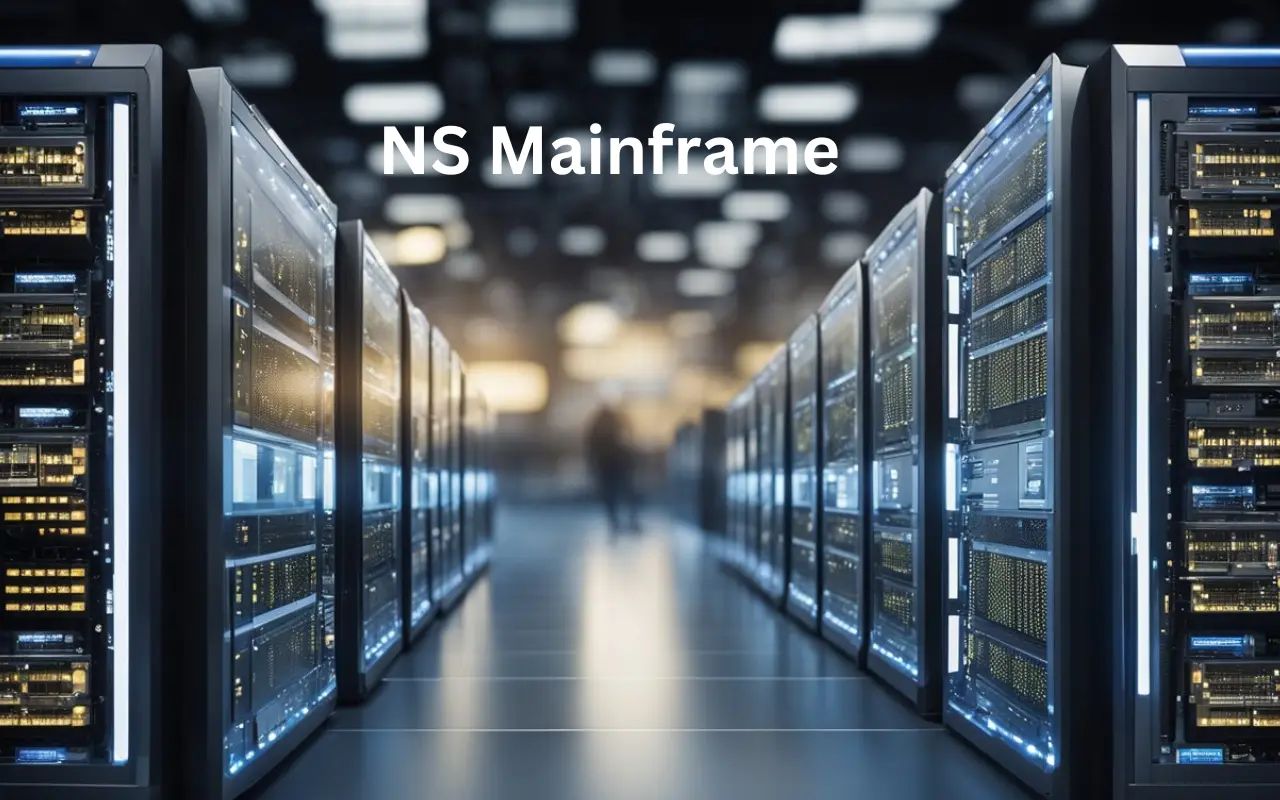
NS Mainframe: The Backbone of Enterprise IT Systems
In the rapidly evolving world of technology, businesses are increasingly dependent on sophisticated IT infrastructures to run their operations efficiently. At the heart of these infrastructures lies a technology that has stood the test of time: the mainframe. Particularly, the NS Mainframe is an essential player in the enterprise IT systems landscape. Despite the rise of cloud computing and distributed systems, mainframes continue to offer unmatched reliability, scalability, and processing power.
In this article, we will explore the significance of the NS Mainframe in modern business environments, its capabilities, and why it remains a cornerstone of enterprise IT systems.
What is the NS Mainframe?
The NS Mainframe refers to a powerful, high-performance computing system designed for large-scale computing tasks, such as handling vast amounts of data, processing transactions, and managing complex workloads. It is typically used by large enterprises and organizations that require a robust IT infrastructure for mission-critical applications. The NS Mainframe excels at managing high volumes of transactions and data processing simultaneously, which makes it indispensable for industries such as finance, healthcare, and government, where reliability and security are paramount.
Mainframes are renowned for their ability to handle multiple tasks concurrently without compromising speed or efficiency. They provide businesses with the processing power needed to run their most vital operations smoothly.
How NS Mainframe Supports Enterprise-Level Operations
Unmatched Reliability and Uptime
In an age where downtime can cost companies millions, the NS Mainframe offers exceptional reliability. With built-in redundancy, error correction, and robust hardware and software, the NS Mainframe ensures near-constant uptime, making it a vital asset for businesses that need to maintain continuous operations. The mainframe’s capacity for uninterrupted service is one of the primary reasons why many mission-critical applications and systems are still run on mainframes, despite newer technologies.
Scalability
Enterprises grow and evolve, and their IT infrastructure needs to grow with them. The NS Mainframe offers unparalleled scalability, allowing organizations to increase their processing power, storage, and capacity as needed. This scalability is crucial for businesses that anticipate significant growth or fluctuating workloads, as the NS Mainframe can handle increased demand without compromising performance.
Processing Power for Complex Tasks
Mainframes are built to handle complex calculations and data processing tasks that other systems may struggle with. The NS Mainframe is designed for high-performance computing, capable of executing thousands of transactions per second, making it ideal for industries that rely on processing massive amounts of data, such as banking, insurance, and e-commerce. Its ability to perform these tasks with accuracy and speed ensures that business operations run smoothly.
Security
Security is a top concern for any organization, especially those handling sensitive data such as financial information or personal health records. NS Mainframe provides enterprise-level security features that ensure data protection and compliance with industry regulations. Mainframes offer advanced encryption, access controls, and auditing tools to safeguard valuable data from unauthorized access, cyberattacks, and data breaches.
Cost Efficiency
Although the initial investment in a mainframe like NS Mainframe can be significant, the long-term cost-effectiveness cannot be ignored. By centralizing the IT infrastructure and consolidating workloads onto a single, high-performance system, businesses can reduce operational costs associated with maintaining multiple servers and systems. Additionally, the NS Mainframe’s ability to manage large amounts of data and transactions means that organizations require fewer resources to perform tasks that would otherwise demand more infrastructure.
Key Features of NS Mainframe
The NS Mainframe comes equipped with numerous features that enable it to support the demands of large enterprises:
Massive Processing Power
The NS Mainframe is designed to handle large-scale transaction processing and complex computing tasks simultaneously. It can process a tremendous amount of data quickly, making it ideal for industries like banking, healthcare, and retail, where fast and accurate data processing is critical.
Virtualization
One of the key benefits of the NS Mainframe is its ability to run multiple virtual machines (VMs) on a single system. This capability enables organizations to optimize resource utilization, consolidate workloads, and enhance operational efficiency. Virtualization also improves flexibility and allows businesses to scale their resources without adding physical infrastructure.
Real-Time Data Processing
The NS Mainframe excels at processing real-time data, ensuring that organizations can make immediate decisions based on the most up-to-date information available. This real-time capability is crucial for industries like finance, where the need to execute transactions and analyze data instantaneously is paramount.
Legacy System Compatibility
Many large enterprises have been relying on mainframes for decades. The NS Mainframe is backward compatible with older systems, allowing businesses to continue using their legacy applications without having to invest in costly rewrites or system migrations. This feature ensures that companies can maintain their operational continuity while adopting modern technologies.
High Availability
High availability is a fundamental feature of the NS Mainframe. Its built-in redundancy and fault-tolerant design ensure that if one component fails, another will take over without disrupting operations. This minimizes downtime and ensures the continuous operation of critical systems.
Benefits of NS Mainframe in Business
Centralized IT Management
With its ability to handle multiple applications and workloads, the NS Mainframe allows businesses to centralize their IT infrastructure. This leads to simpler management, reduced overhead, and increased control over resources. Organizations can also reduce the complexity of managing multiple servers and systems, streamlining operations and improving efficiency.
Regulatory Compliance
Many industries, particularly finance and healthcare, are subject to stringent regulatory requirements regarding data security, storage, and privacy. The NS Mainframe is designed to help businesses comply with these regulations by offering robust security features, such as encryption and secure access controls. Additionally, its ability to process large amounts of data securely makes it an excellent choice for industries with high compliance requirements.
Future-Proofing
Despite the rise of cloud computing and other emerging technologies, mainframes like the NS Mainframe continue to evolve and adapt to the changing technological landscape. Organizations that invest in NS Mainframe systems are future-proofing their IT infrastructure, ensuring that they have a scalable, secure, and robust system capable of supporting their business needs for years to come.
Conclusion
The NS Mainframe is far from obsolete. It continues to play a crucial role in the world of enterprise IT systems. Its unmatched reliability, scalability, and processing power make it an invaluable asset for businesses that rely on mission-critical applications. From providing robust security to offering cost efficiencies, the NS Mainframe ensures that organizations can continue to operate efficiently, no matter how complex or demanding their IT needs become.
By investing in NS Mainframe, companies are not just buying a powerful system; they are investing in the future of their business. As long as large-scale data processing and high-performance computing are essential to business operations, mainframes will remain a key pillar of enterprise IT systems.
FAQs
What is the NS Mainframe used for?
Enterprises use the NS Mainframe to manage large-scale data processing, transactions, and mission-critical applications with high reliability.
How does NS Mainframe handle security?
The NS Mainframe offers advanced security features like encryption, access controls, and auditing tools to protect sensitive data and ensure compliance.
Can the NS Mainframes scale with business growth?
Yes, the NS Mainframe is highly scalable, allowing businesses to expand their processing power and resources as they grow.
Is NS Mainframe compatible with legacy systems?
Yes, the NS Mainframe is backward compatible, enabling businesses to continue using older systems and applications while adopting newer technologies.
What industries benefit from using NS Mainframes?
Industries such as finance, healthcare, and government benefit from the NS Mainframe due to its ability to handle high volumes of data and transactions securely and efficiently.




